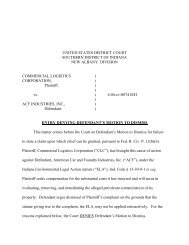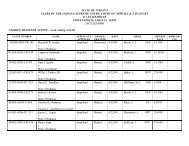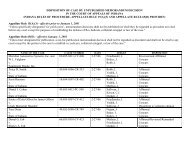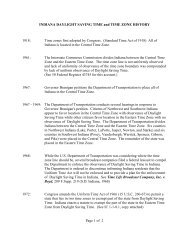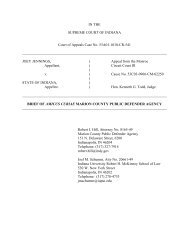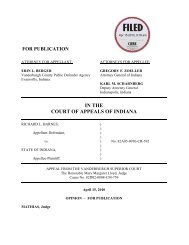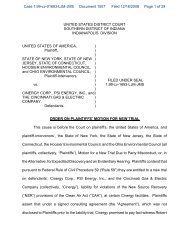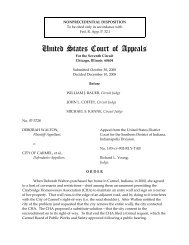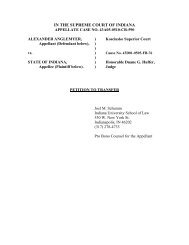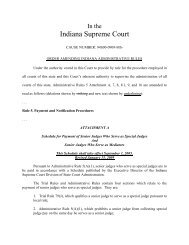Published Order Dismissing Appeal - The Indiana Law Blog
Published Order Dismissing Appeal - The Indiana Law Blog
Published Order Dismissing Appeal - The Indiana Law Blog
Create successful ePaper yourself
Turn your PDF publications into a flip-book with our unique Google optimized e-Paper software.
A judgment is a final judgment if:<br />
(1) it disposes of all claims as to all parties;<br />
(2) the trial court in writing expressly determines under Trial Rule 54(B) or<br />
Trial Rule 56(C) that there is no just reason for delay and. in writing<br />
expressly directs the entry of judgment (i) under Trial Rule 54(B) as to<br />
fewer than all the claims or parties, or (ii) under Trial Rule 56(C) as to<br />
fewer than all the issues, claims or parties;<br />
(3) it is deemed final under Trial Rule 60(C);<br />
( 4) it is a ruling on either a mandatory or permissive Motion to Correct<br />
Error which was timely filed under Trial Rule 59 or Criminal Rule 16; or<br />
(5) it is otherwise deemed final by law.<br />
App. R. 2(H). <strong>Indiana</strong> Trial Rule 54(B) provides, in pertinent part, that "the court may<br />
direct the entry of a final judgment as to one or more but fewer than all of the. claims or<br />
parties only upon an express determination that there is no just reason for delay and upon<br />
an express direction for the entry of judgment."<br />
Appellate jurisdiction may also lie from certain nonfinal, interlocutory orders.<br />
"An appeal may be taken from other interlocutory orders if the trial court certifies its<br />
order and the Court of <strong>Appeal</strong>s accepts jurisdiction over the appeal." App. R. 14(B).4 A<br />
trial court's certification of an interlocutory order is within its discretion and "upon<br />
motion by a party." App. R. 14(B)(1). However, "[a]n appeal from an interlocutory<br />
order is not allowed unless specifically authorized by the <strong>Indiana</strong> Constitution, statutes,<br />
or the rules of court. <strong>The</strong> authorization is to be strictly construed, and any attempt to<br />
4 <strong>Indiana</strong> Appellate Rule 14(A) defines a specific class of interlocutory orders that may be<br />
appealed as of right without prior certification from the trial court. <strong>The</strong>re is no question that the<br />
Discovery <strong>Order</strong> is not appealable as of right under Appellate Rule 14(A). <strong>The</strong>re is also no dispute that<br />
Appellate Rules 14(C) and 14(D) do not apply here.<br />
8



